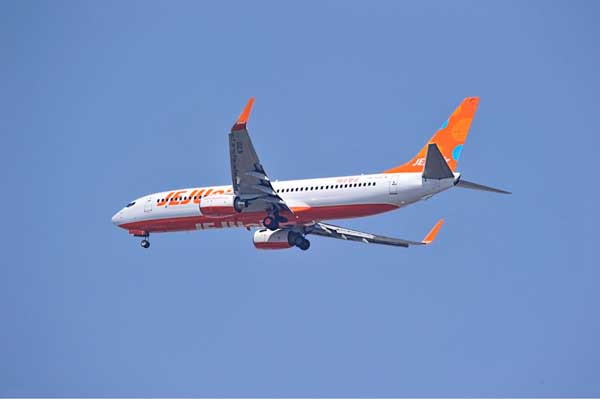Jeju Air crash claims 179 lives at Muan International Airport

[Jeju Airliner flight in the sky. Photo Credit to PxHere]
On December 29th 2024, Jeju Air’s flight from Bangkok to Muan International Airport crash-landed without landing gear, striking a fence on the runway and resulting in 179 fatalities.
Only two crew members survived the catastrophe.
Preliminary reports suggest that a bird strike caused the belly landing across the runway.
Critics have questioned the presence of a fence on the runway, arguing it should not have been there.
While investigators continue to probe the exact cause of the crash, the Ministry of Transportation of South Korea announced the completion of recovery operations including the gathering of remains from the wreckage.
The Ministry is currently recruiting professional investigators and has committed to conducting the investigation with transparency and honesty to the public.
Experts are pointing out the bird strike as the main cause of the accident, drawing attention to Muan International Airport's inadequate bird strike prevention infrastructure.
Compared to other airports in South Korea, it lacks essential equipment such as noise makers, blank round shotguns, and thermal cameras used to deter birds.
Professor Kim Young-gil at Korea Aerospace University explains that during landing, aircraft rely on two main landing gears at the rear for impact absorption and a “nose landing gear” at the front for steering.
The landing gear requires engine power to deploy, and if both engines fail, it may not operate and this was the possibility of a “shut down” was raised at the time of the accident.
Further scrutiny has fallen on the concrete embankment located 264 meters from the end of the runway, which critics say exacerbated the damage in this accident.
However, with a runway length of 2,800 meters, Muan Airport meets the criteria for the take-off and landing of the B737-800 aircraft involved in the accident.
The Ministry of Transportation has dismissed runway length as a potential cause.
The Korean government designated the week of December 29th until January 4th as a national mourning period.
The nation’s collective grief has led to the cancellation of most year-end gatherings and events throughout South Korea.
Political figures, including the Speaker of the National Assembly and acting presidency associates, visited Muan airport to offer condolences to the victim’s families.
In a show of community support, a chef from the TV show Culinary Class Wars provided meals at the emergency shelter for the families.
As of January 16th, 19 days after the accident, authorities concluded the search and recovery operations at the accident site.
The incident is expected to have far-reaching implications for Korea’s aviation industry, with commercial aviation- related stocks and air traffic projected to decline.
As South Korea continues to mourn, the nation needs to focus on recovery and implement stronger safety measures to prevent such disasters in the future.

- Danny Jung / Grade 11 Session 2
- Belmont Secondary School

![THE HERALD STUDENT REPORTERS [US]](/assets/images/logo_student_us.png)
![THE HERALD STUDENT REPORTERS [Canada]](/assets/images/logo_student_ca.png)
